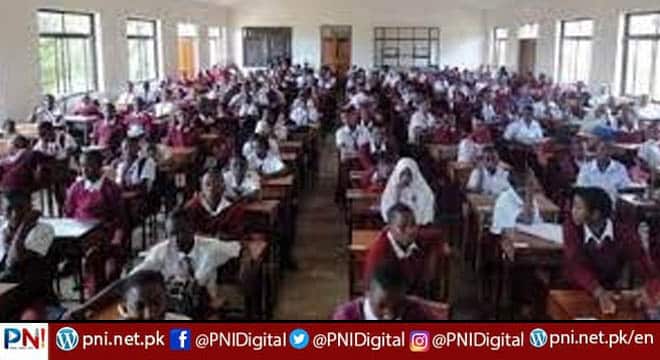DODOMA, Tanzania, 16 Oct (AA/APP):- On a bright Monday, a dozen smartly dressed blind students slowly walked to their classroom after the morning assembly.
The students hand their canes on hooks outside a doorway to their classroom then adeptly touch wooden desks to identify their assigned spots.
These visually-impaired students at DCT-Mvumi secondary school located 36 kilometers (22 miles) from Tanzania’s capital, Dodoma City, seem to take advantage of the facilities, including braille textbooks perched on shelves and tablets loaded with specially designed apps to help those with partial blindness to see what is on the board.
Mvumi is the only school in Tanzania with requisite teaching materials and equipment for visually impaired students, thanks to the Lutheran Church’s Central Diocese.
At the school, visually impaired students can be spotted decoding texts on Braille machines or taking notes with the help of fellow students.
While the state-of-the-art facilities are cause for celebration for these students, it is a far cry for their counterparts elsewhere in Tanzania whose academic future is increasingly becoming bleak.
– Shortage of special teachers
As nations mark White Cane Day, blind and visually impaired students in the East African country have been pushed on the wobbly edge of survival due to a shortage of teachers with special skills and requisite learning materials.
While children are entitled to better education, blind students in Tanzania face many hurdles due to deeply rooted and unfounded beliefs that being blind is a curse.
“We don’t have teachers with special skills to understand the needs of blind children,” said Lilian Ntunge, a visually impaired student at Nkuhungu secondary school in Dodoma.
A recent study by HakiElimu, a Tanzanian nonprofit education organization, found that even in schools deemed “inclusive,” the environment was not very friendly for students with visual impairment. Very few schools exist in Tanzania specifically for people with disabilities of any kind.
The report revealed that many students still face unqualified, incompetent teachers and inadequate teaching materials for visually-impaired learners.
The country joined a global movement to create inclusive, quality education for diverse learners, including students with disabilities. In 2004, it introduced a national disability policy emphasizing the need for a conducive learning environment for people with special needs, and the country’s Ministry of Education adopted it in 2009.
Yet, schools still face several challenges in terms of inclusive, quality education.
Follow the PNI Facebook page for the latest news and updates.









